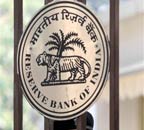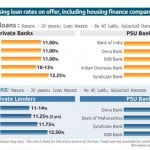The Reserve Bank of India (RBI) on Tuesday kept the key rates – repo rate and cash reserve ration (CRR) unchanged during its monetary policy review following slow growth and persistent inflation.
Key highilights
- It also revised the growth forecast downwards from 7.3 per cent to 6.5 per cent for FY13.
- Weak monsoon to drive up inflation
- Rupee depreciation adding pressure
- At 11.16 am, Sensex was down 6.92 at 17136.76. Nifty was down 13.15 at 5186.65
- RBI cuts Statutory Liquidity Ratio (SLR) by 1 per cent to 23 per cent
- RBI retains short term lending (repo) rate at 8 per cent; also keeps other rates unchanged
- RBI lowers growth projection to 6.5 per cent, from 7.3 per cent earlier, for the current fiscal
- March-end inflaion projection raised to 7 per cent from 6.5 per cent earlier: RBI
In its macroeconomic report released a day ahead of the monetary policy review on Monday, the central back had indicated that it would not go for an interest rate cut.
“Monetary policy space needs to be created through fiscal adjustment and structural measures to improve supply conditions …” the Reserve Bank said in the report.
The near-term outlook on inflation is marked by a slew of upside risks despite significant slowdown in growth, the RBI said, adding that suppressed inflation, poor supply responses and a weaker monsoon are risks to the price situation.
“Persistence of inflation, even as growth is slowing has emerged as major challenge for monetary policy,” it said.
For the month of June, the headline or WPI inflation stood at 7.25 per cent while the consumer price index was at double-digit level of 10.02 per cent.
The pro-growth lobby, which is alarmed over quarterly growth slipping to a nine-year low of 5.3 per cent for the March quarter, wants the RBI to slash interest rate to prop-up growth.
In its last review of June 16 , the RBI had refrained to cut policy rate despite hard lobbying by industry to ease policy rate.
RBI also said that the growth in the current fiscal is likely to be below the reduced potential of 7.5 per cent because of “global headwinds, inflation and policy uncertainty”.
[“source-businesstoday”]




